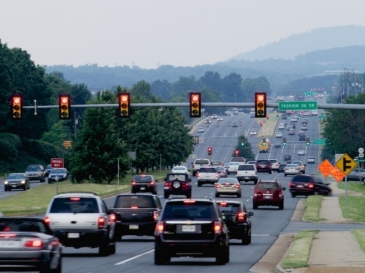 Robert McCartney, a Washington Post columnist, has done a remarkable thing: He has taken a look at a transportation project outside the Washington region and decided he didn’t like what he saw. Not only is the Charlottesville Bypass ill conceived, it is part of a pattern in which the McDonnell administration “relentlessly pushes a major highway project despite abundant evidence that the money could be spent more wisely elsewhere.” By way of specifics, he also cites the U.S. 460 upgrade between Suffolk and Petersburg and the Bi-County Parkway.
Robert McCartney, a Washington Post columnist, has done a remarkable thing: He has taken a look at a transportation project outside the Washington region and decided he didn’t like what he saw. Not only is the Charlottesville Bypass ill conceived, it is part of a pattern in which the McDonnell administration “relentlessly pushes a major highway project despite abundant evidence that the money could be spent more wisely elsewhere.” By way of specifics, he also cites the U.S. 460 upgrade between Suffolk and Petersburg and the Bi-County Parkway.
What makes the column remarkable is that McCartney escapes the usual myopia in which the newspapers serving Virginia markets focus monomaniacally on transportation projects in their readership zones without the slightest interest in anything occurring anywhere else. Thus, the Rail-to-Dulles rail project and the Bi-County Parkway receive heavy coverage from Washington-area media but other newspapers are no more interested than if they occurred in Boston or New York. It amazes me that Rail-to-Dulles, perhaps the biggest infrastructure project in Virginia history, has gotten zero visibility downstate.
Likewise, the Charlottesville Bypass has gotten no attention outside Charlottesville, the Midtown-Downtown Tunnel has garnered none outside Hampton Roads, and U.S. 460, which is outside any major newspaper’s circulation zone, has generated minimal coverage by any major metro daily.
Thus, no one gets the big picture. No one tunes into how mega-projects of questionable value around the state have consumed a disproportionate share of state transportation resources. No one questions the processes that determine how transportation funding priorities are set. And no one wonders if governance of the system needs reform. Instead, everyone goes along — baah, baah, baah — and agrees to raise taxes.
So, thank you Mr. McCartney, for proving to be a rare exception to the rule. Not that the media’s approach to covering transportation will change. But the column was a refreshing departure from the norm.
— JAB


